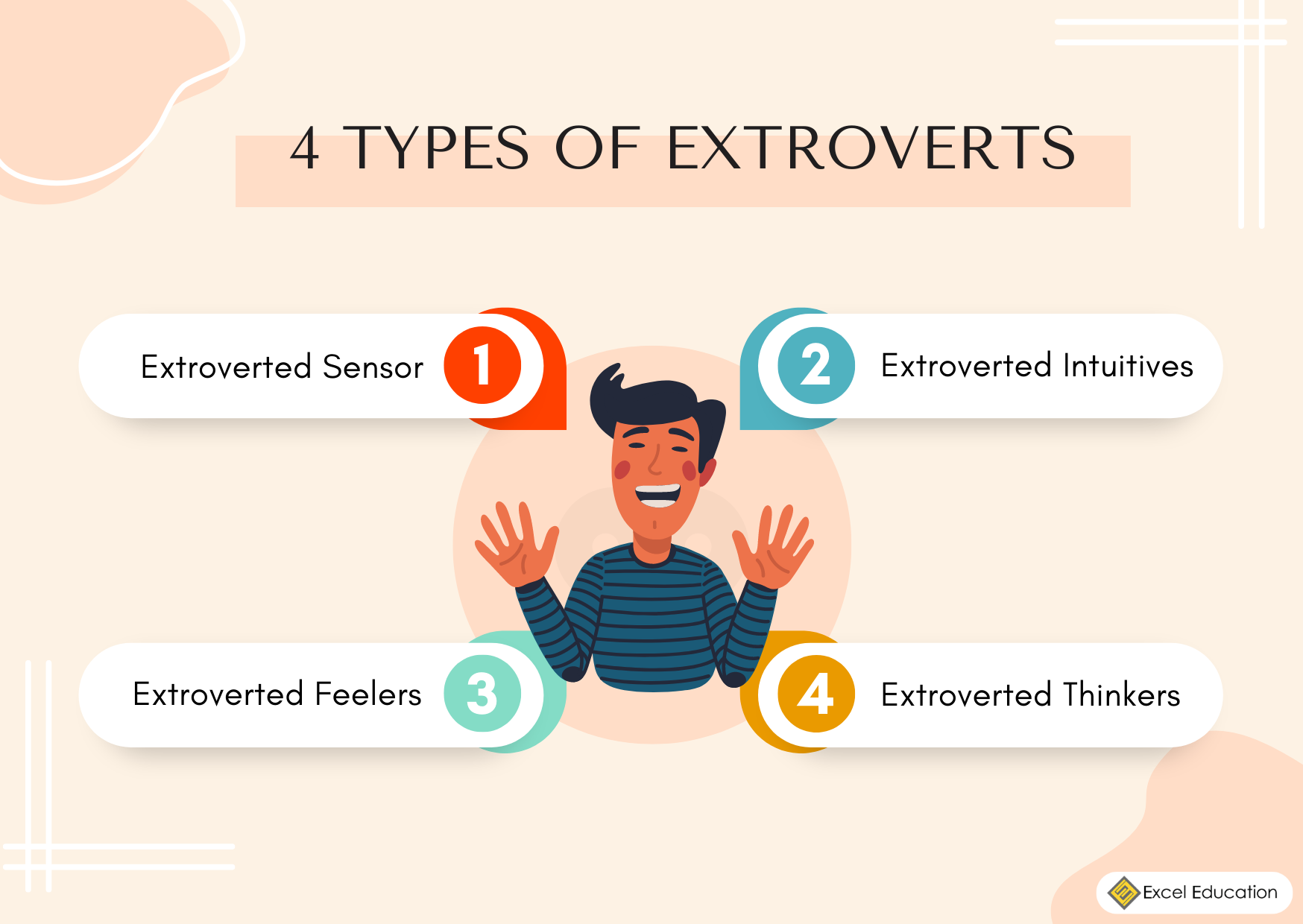
Do you frequently find yourself in social situations in which you are the centre of attention and are constantly entertaining those around you? Do you thrive and feel most creative when conversing with others? If you answered yes to these questions, you are probably an extroverted person who gets energised from being around other people.
If you are an extrovert, you might be drawn to roles that an introvert might not be. But how do you know which degree courses will play to your natural strengths and abilities while also leaving you feeling excited and energised at the end of the day?
In this article, we will show you what are the best courses for extroverts!
What is an Extrovert?
Extroverts are individuals who are expressive and outgoing. Extroverts are friendly, sociable people who thrive in personal or professional groups. Their dynamic personalities provide them with excellent people skills, making them ideal candidates for a wide range of successful career opportunities. Extroverts, as opposed to introverts, enjoy spending time with others and are often energised by back-and forth banter.
They enjoy social settings, thrive in social situations, and seek out social stimulation, among other characteristics. They also enjoy group work because they like to discuss and solve problems together. Aside from that, they have many friends and make new friends easily, which is due in part to their enjoyment of other people’s energy and the opportunity to interact with those around them. They are also friendly and upbeat as people with this personality type are likeable and easy to approach. Furthermore, they enjoy being the centre of attention, having people focus on them and influencing them positively. However, they do not enjoy or require a lot of alone time; in fact, they believe that too much alone time depletes their natural energy, so they recharge their internal batteries by being around other people.
The Types of Extroverts

Extroverted Sensor
Extroverted sensors enjoy being stimulated by the information they gather from their surroundings. They learn best by using their five senses (see, touch, hear, taste, and smell) to make sense of what is going on. Rather than focusing on hypotheses and theories, extroverted sensors rely on their own personal experiences to determine what the truth means to them. Their preferred method of socialising is one in which they share experiences with others; they’d rather bond over something fun than over a long conversation.
Extroverted Intuitives
Extroverted intuitors are less extroverted than extroverted sensors. Extroverted intuitors like to delve into abstract ideas and speculate on what-ifs and possibilities. Friendly debates and deep, intellectual conversations in which they can discuss and exchange ideas with others stimulate these types of extroverts. If extroverted intuitors become bored or unfulfilled in stagnant conversations that reach dean ends, they don’t mind venturing out on their own to purse and sustain their own ideas by seeking out other sources.
Extroverted Feelers
The most stereotypically extroverted extroverts are extroverted feelers. They enjoy being around people because it allows them to learn about them and share their experiences with one another. Although extroverted feelers, like any other extrovert or introvert, require some alone time to recharge, they require the least amount of alone time because being around others gives them a sense of purpose and fulfilment.
Extroverted Thinkers
With their decisive and confident nature, extroverted thinkers appear to be natural leaders. They prioritise logic and concentrate on producing results. They enjoy creating structured systems that run smoothly and are goal-oriented people. Extroverted thinkers frequently overachieve because they derive energy from striving for goals and dreams that make them feel accomplished. They are motivated by new challenges and enjoy solving difficult problems.
Best Courses for Extroverts
While there are numerous top degree courses for extroverts, the following are some of the best courses for extroverts based on role responsibilities and duties:
Event management

When you study event management, you will learn to oversee all aspects of organising and executing an event, whether it’s a business conference or a wedding. You will also learn how to manage the logistics, act as a liaison between the client throwing the event and various vendors, hire and manage event staff, and provide on-site support during the event to ensure everything runs smoothly.
If you’re interested in studying event management, you could pursue:
Name of the University | INTI International College | Taylor’s University Lakeside Campus |
Programmed offered | BA (Hons) Event Management and Marketing (3+0) | Bachelor of Mass Communication (Honours) in Public Relations and Event Management |
Total Duration | 3 years | |
General Intake | January, April & August | January, March & August |
For more information on event management course, contact us today!
Early childhood education

When you study this course, you must be prepared to plan lessons, deliver lectures, design educational experiences, and provide direct support to students to help them reach their full potential. In addition to this, you will need to communicate with parents and students on a regular basis. Being able to motivate students and develop relationships with students is critical to both students and teachers.
If you’re interested in studying early childhood education, you could pursue:
Name of the University | SEGI University | Methodist College Kuala Lumpur (MCKL) | UOW Malaysia KDU University College |
Programmed offered | Bachelor of Education in Early Childhood (Dual Award) | Bachelor of Mass Communication (Honours) in Public Relations and Event Management | Diploma in Early Childhood Education |
Total Duration | 3 years | 2 – 3 years | |
General Intake | January, March, May, June & September | January, March & August | January, March, May, July, September & October |
For more information on early childhood education course, contact us today!
Law

When you choose to study law, you must know how to communicate with clients, judges and colleagues, investigate legal issues, collect evidence and draft legal documents. This course is more suitable for more social extroverts, as many of their responsibilities involve communicating with others, meeting new people and public speaking.
If you’re interested in studying law, you could pursue:
Name of the University | Brickfields Asia College (BAC) | Taylor’s University Lakeside Campus | HELP University |
Programmed offered | The UK Degree Transfer Programme (Law) 2+1/1+2 | Bachelors of Law (Hons) | UK Degree Transfer Programme (Law) |
Total Duration | 3 years | ||
General Intake | January, April, June & September | January, March & August | December, July & September |
For more information on law course, contact us today!
Public Relations

You will need to learn how to build and maintain a strong public image and network for the company they represent. You’ll also do this by building relationships with the community, developing a public relations strategy, writing and sometimes delivering press releases or speeches, and other activities. Extroverts may be more apt to fill this role, as strong communication skills and the ability to make connections are essential.
If you’re interested in studying public relations, you could pursue:
Name of the University | Taylor’s University Lakeside Campus | UOW Malaysia KDU University College | Curtin University Malaysia |
Programmed offered | Bachelor of mass communication (Hons) (Public Relation & Marketing) | Bachelor of Arts (Hons) in Public Relations | Bachelor of Commerce (Public Relations and Management) |
Total Duration | 3 years | ||
General Intake | January, March & August | January, March, May, July, September & October | February & July |
For more information on public relations course, contact us today!
Marketing

Taking a marketing course is one of the best jobs for extroverts because it requires a lot of networking. After graduation, your main responsibilities will be to supervise the company’s sales team, organise training, and ensure that your team reaches sales quotas within the stipulated time. Visiting and meeting new clients are also important functions of the position, so extroverts thrive in these situations. Small talk comes naturally to them, and their outward enthusiasm for what they sell can gradually win over customers.
If you’re interested in studying marketing, you could pursue:
Name of the University | Asia Pacific University of Technology & Innovation (APU) | INTI International College Subang |
Programmed offered | BA (Hons) in Marketing Management | Bachelor of Arts (Honours) in Marketing (3+0) |
Total Duration | 3 years | |
General Intake | March, July & September | January, April & August |
For more information on marketing course, contact us today!
Nursing

If you’re a caring person, studying nursing could be a great course for you. You will learn how to address patients’ health problems, provide care for sick, disabled, recovering or injured patients, maintain vital medical records, implement care plans, advise patients on health maintenance, and provide patients with preventive care such as health checks and medications service advice.
If you’re interested in studying nursing, you could pursue:
Name of the University | MAHSA University | Nilai University |
Programmed offered | Bachelor of Science (Hons) Nursing | Bachelor of Science (Hons) in Nursing |
Total Duration | 4 years | |
General Intake | August | January & July |
For more information on nursing course, contact us today!
Psychology

Are you good at helping others solve their problems? If so, you may want to consider studying psychology. In this course, you will learn how to provide treatment and support to patients to help them overcome various problems. You can specialize in specific areas based on your interests, such as mental health or family and marriage therapy.
If you’re interested in studying marketing, you could pursue:
Name of the University | Asia Pacific University of Technology & Innovation (APU) | Univerrsity of Nottingham Malaysia | Taylor’s University Lakeside Campus |
Programmed offered | Bachelor of Science (Honours) in Psychology | Psychology BSc (Hons) | Bachelor of Psychology (Hons) |
Total Duration | 3 years | ||
General Intake | March, July, & September | September | March & August |
For more information on psychology course contact us today!
Finally, whether you’re an extrovert, and introvert, or somewhere in the middle, choose a course that makes you happy. Chances are that your natural personality will lead you to the ideal course. If you have any questions, please contact us now!
Recommended Articles to Read
About The Author

Zhee Ying
Bello


